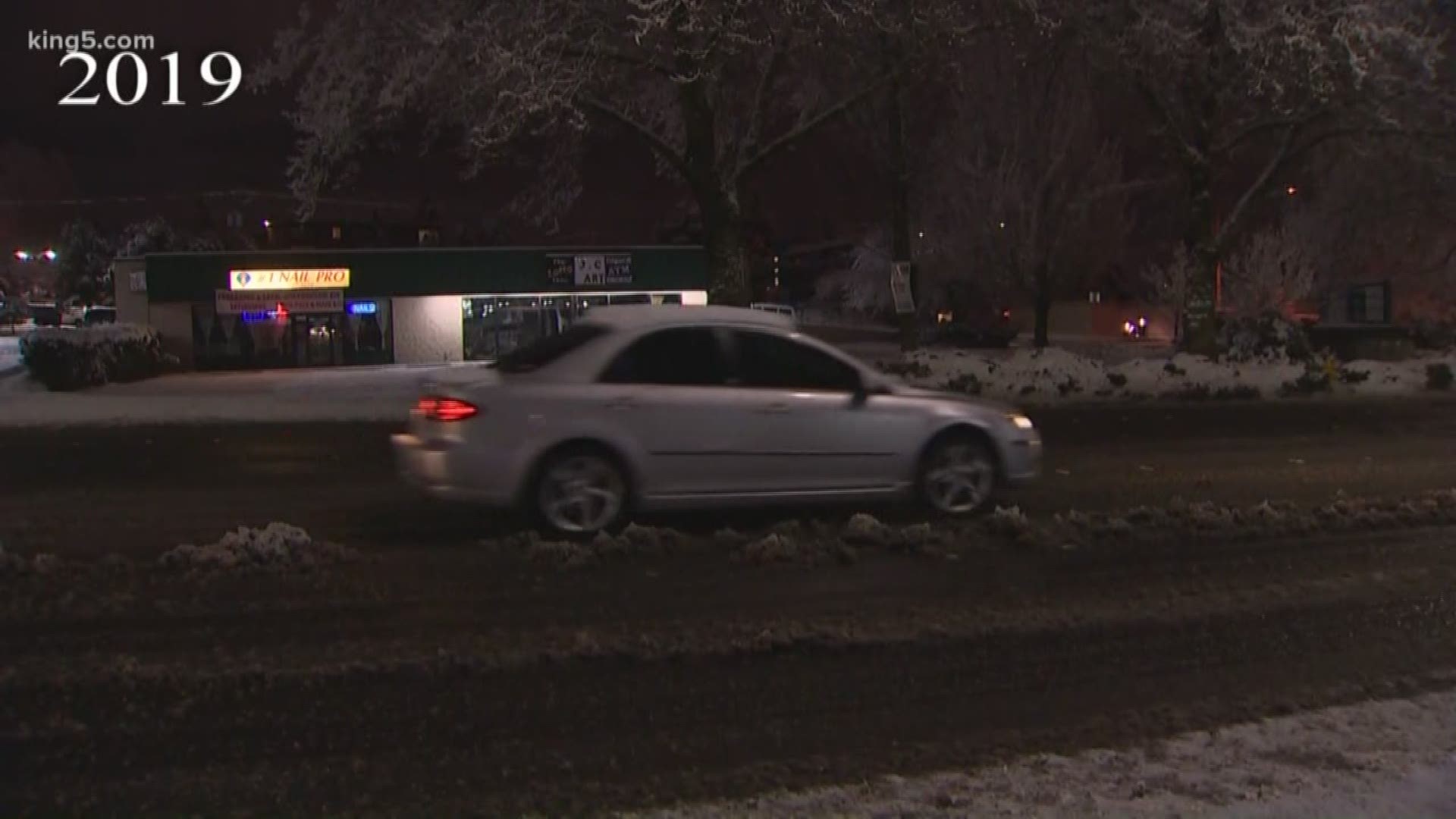SEATTLE — Winter has arrived in western Washington. While the Pacific Northwest doesn’t get as cold as some parts of the country, it's important to be prepared before snow and cold temperatures hit.
Below are five ways you can prepare for the winter months in the Puget Sound region:
1. Keep an eye on the forecast and be proactive
This seems like a given, but the time to stock up on groceries and winter gear is not as the storm is hitting, but before. Everyone else will be scrambling to stock up, so planning ahead makes sure you get what you need before the shelves are empty or conditions are too dangerous to drive in.
Buy your tire chains, rock salt, and shovel before snow hits and keep them in your car for easy access.
Although it's unlikely that people living near the Puget Sound will be snowed-in their homes, stocking up can save you a trip. There's nothing wrong with grabbing the classic bread and milk from the shelves, but here are some other things to have in your home during a bad snow event:
- A 3-day supply of drinking/bottled water (especially helpful if your pipes freeze)
- Cans of soup
- Non-perishables/pasta
- Favorite snacks like pretzels, popcorn or chips
- Baby formula and food
- Extra pet food, littler and treats
- Eggs/milk/butter
- Personal hygiene products and medications (prescriptions and over-the-counter)
2. Prevent your pipes from freezing
With frigid and below-freezing temperatures, there is always a threat for frozen pipes, which can cause thousands of dollars of damage.
To avoid it, keep your garage door closed if your water supply is located there. Open up kitchen and bathroom cabinet doors to allow for warmer air to circulate around the pipes. Allow some water to drip from your sink. Running water through a pipe, even if it's just a trickle, can help prevent the pipes from freezing.
Keeping your home at a consistent temperature of at least 55 degrees will help prevent freezing. Although your heating bill may increase, it'll prevent a much more costly repair if the pipes freeze and burst.
3. Winterize your vehicle
Again, the time to make your car winter-safe is not during the middle of a storm.
Make sure you have your essentials like jumper cables, a first-aid kit, tire chains, salt, and a shovel. It also helps to have an extra change of warm clothes, water and snacks in case you get stranded.
Before hitting the road, test your battery (since capacity decreases in cold weather) and check your tire pressure. Also, double-check that you have adequate anti-freeze and that your wipers work.
4. Know how to put chains on your tires
Some roads, particularly over the mountains, will require chains at times if you don't have an all-wheel drive.
Practice installing your chains at home before the weather hits so you feel comfortable securing them.
Double-check your car owner's manual and read the directions for the chains to ensure you're putting them on correctly.
Chains are not designed to be used when driving on the freeway, or at high speeds. Washington State Patrol says they work best when driving slowly, like when driving down a residential street. Chains can actually damage the road if used on the freeway, so drive slowly.
5. Keeping warm
While western Washington doesn't often see temperatures as cold as places like Minnesota or New England, it can still get cold enough to cause injuries.
Stock up on blankets, hand warmers, and candles if temperatures are predicted to drop below freezing.
Seniors, children, pets, and those living on the streets are particularly vulnerable to hypothermia and frostbite.
Before the weather hits, recognize the signs of frostbite and hypothermia and how to respond to it.
If you have elderly or homeless neighbors, make a plan to check on them from time to time.
For pets, limit the time they spend outdoors. Do not leave them out overnight, even if they have a doghouse. Several pet stores do sell coats and boots to keep your furry friend warm, but that should not be seen as an alternative to leaving them out in the cold for an extended period. If it's too cold for you, it's too cold for them.

